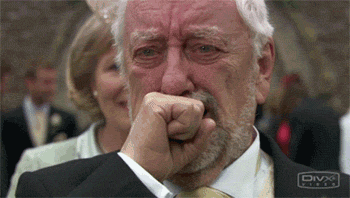+4
I think that's one of the best reviews you've written, MM, and that means something given the consistently high quality of your reviews and writing. Even though I liked The Hateful Eight considerably more than you did, I share some of your criticisms: QT's gratuitous narration; how forced the chaptered storytelling felt given the linear story and confined setting; as well as the noticeable absence of Sally Menke rearing its head once again (this and Django Unchained are both twenty minutes too long, in my opinion).
Most of your issues with The Hateful Eight seem to lie with the characters, but I don't find them any uglier or unpleasant than typical foul-mouthed Tarantino creations. To be fair, though, I certainly see how the unpleasant side of their personalities is more on display here given the circumstances and company in which the characters find themselves. So I can understand how you found them too unlikable to be entertained by them. Luckily, I didn't have that problem. Even if the characters weren't "likable," I didn't mind being a fly on the haberdashery wall, waiting to see how they'd eventually tear each other apart. I also laughed at much of the humor, even if said humor is often mean-spirited. I read a review that accused anyone who laughs at the abuse of Jennifer Jason Leigh's character to be a misogynist, while anyone who laughs at the use of the n-word to be a racist, so apparently I'm a misogynistic racist. Add "mouth rapist" to that label, too, since I was cracking up during Samuel L. Jackson's deranged flashback/monologue.
And speaking of the man with the "warm, black dingus," I thought it was a great joy to have Samuel L. Jackson front and center in a Tarantino movie again. Nobody does a better job than Samuel L. Jackson of transforming QT's dialogue into verbal poetry. Like you mentioned, the cast gave great performances. I think I was more impressed with Jennifer Jason Leigh than you were. She was amazing -- so ugly and vulgar, yet cunning and captivating. It was also great seeing Roth and Madsen back in Tarantino's universe, even if the former felt like he was channeling Christoph Waltz. I've seen a lot of people criticize Madsen's performance in the film, but I think he has a great on-screen presence. I do agree with you that Demián Bichir's talents were mostly wasted.
After watching The Hateful Eight, I walked out of the theater feeling slightly disappointed. I go into Tarantino's films with higher expectations than I do for any other director, which is unfair to him. "Great" somehow feels like a letdown, which is ridiculous. For me, though, his films have more rewatchability than any other director. I've grown to like each of his films more and more with every viewing. I have no doubt that The Hateful Eight will continue that same trend. I've been thinking about the film a lot over the last few weeks. (I've still got that damn Roy Orbison song stuck in my head.) I think The Hateful Eight is arguably QT's most self-indulgent film. Yet despite the film's flaws, I think it might also be his most interesting work. It reminded me a bit of the excellent, atypical spaghetti western The Great Silence, partly because of the snowy climate (I can think of very few westerns that take place in such a setting), but also the nihilism. The Hateful Eight is the bleakest film in Tarantino's canon. There's no redemption. No happy ending. I think its tone is the reason why audiences have been so divided. Imagine Kill Bill where The Bride doesn't get her revenge. Or Inglourious Basterds where Hitler wins. Or Django Unchained where Django never escapes slavery. Those films wouldn't be as popular. The Hateful Eight feels like Tarantino at his most standoffish: angry, cynical, arms folded, an I-don't-give-a-f*ck scowl on his face. And the more I've reflected on the film, the more substantial I think it is. Daniel's excellent post about Lincoln's letter is just one example of some of the film's hidden depth.
Anyways, Ole Mary Todd's a-calling, so it must be time to end this reply . . .












 . I don't agree with you but really great job, Hateful Eight is actually in my top five Tarantino's after his 3 90's films and Inglorious Basterds. Will read your your Cranes Are Flying one later too, looks like great stuff again
. I don't agree with you but really great job, Hateful Eight is actually in my top five Tarantino's after his 3 90's films and Inglorious Basterds. Will read your your Cranes Are Flying one later too, looks like great stuff again  impressive. I always admire every single person who takes on one of my reviews.
impressive. I always admire every single person who takes on one of my reviews. 